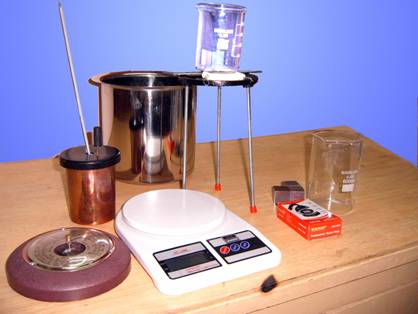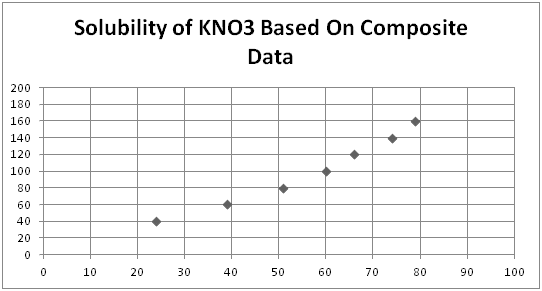William completed his Bachelor of Science and Master of Arts in 2013. He current serves as a lecturer, tutor and freelance writer. In his spare time, he enjoys reading, walking his dog and parasailing.
Article last reviewed: 2022 | St. Rosemary Institution © 2010-2025 | Creative Commons 4.0
The pattern that one must consume fuels and dirtily provide energy and power has failed. Applying it has caused and it cannot solve the increasing world energy crisis. Most energy is presently obtained by “dirty methods”. Hence as energy production increases so do harmful combustion of by-products. And if this method continues to be used,…
Hypothesis If the change in temperature is greater when the water is heated with the use of the fire caught by the food substance, then the energy content in the food substance is higher because the heat energy is greater, since the heat energy is absorbed by the water when the fire is kept under…
Political Subsidies and mandatory blending have created an artificially rapid growth in biofuel production, worsening some negative impacts. Existing policies have had a limited effect in achieving energy security and climate change mitigation and therefore need to be reviewed. Government incentives and support for biofuels have been largely guided by national or regional interests rather than a more global perspective. There is…
Biofuel is a form of recycled fuel, produced from biomass or waste generated by the use of organic material which may be any substance including vegetable and animal products like grass, trees, plant parts and plants in the ocean. Biomass can produce liquid and gaseous fuels, which can do almost everything that fossil fuels do.…
Aim: Investigate any one of the factors affecting the rate of heat loss in a liquid. Introduction: Heat is a form of energy that flows due to a temperature difference. Heat transfer is a process in which energy in the form of heat energy is exchanged between the materials which are at a different temperature.…
Purpose: Find crystallization temperatures for 7 concentrations of KNO3 and make a solubility graph Materials: KNO3, test tube, stir rod, weigh boats, hot plates, thermometer, 10 mL graduated cylinder. Procedure: -In two test tubes, put exactly 5 mL water in each -Put assigned amount KNO3 in each -Heat in hot water bath until dissolved- you…
Purpose: Find silver produced and compare to predicted. Cu + 2AgNo3 → Cu(NO3)2 + 2Ag Procedure: -in small beaker (100-250 mL), weigh beaker -Add 3.00 OR LESS of AgNo3, weigh AgNo3 -Weigh copper penny -Add 80 mL H2O -Heat and dissolve (warm, not boil) -Put copper penny into AgNo3(aq) –observe -Allow to sit overnight…
OPEN WITH AN INTRODUCTORY SERIES OF APPOSITIVES, THEN A DASH AND A SUMMARIZING SUBJECT This pattern begins with a cluster of appositives. An appositive we may define as another naming for some noun. After the appositive comes a dash, followed by a summarizing word. These summarizing words may be: such, all those, these, these many,…
In 1512, the Dutch humanist Desiderius Erasmus (1466-1536) published De Copia (meaning “on command of language” or “richness of expression”). Erasmus’s book was one of the most influential rhetoric texts of the European Renaissance. One exercise in De Copia directs students to compose several hundred variations of one sentence. This exercise has three purposes: (1) …
Parallelism is the repetition of a grammatical structure to emphasize a relationship between ideas. Parallelism gives balance, focus, and clarity to a sentence. Parallelism establishes a pattern of repetition that writers can manipulate to create a vast array of rhetorical effects. Examples: Writers can reinforce and emphasize their use of parallelism by repeating one or…
USE A PERIODIC SENTENCE In a periodic sentence, descriptive elements (or details) introduce the sentence, pushing the complete thought to the end of the sentence. This pattern proves quite effective for emphasis or suspense because the most emphatic point of a sentence is the end. Periodic sentences are usually long, complex sentences, the independent clause…
WRITE A COMPOUND SENTENCE USING A COMMA BEFORE THE COORDINATING CONJUNCTION (FOR, AND, NOR, BUT, OR, YET, SO) EXAMPLES 1. Arthur likes music, but Chris has a tin ear. 2. One must humor him, or he will have a tantrum. 3. I won’t go to the dance, nor will I buy a ticket. 4. I…
OPEN WITH A NOUN CLAUSE A noun clause may act as the subject of a sentence, the object of a verb, the predicate noun, or the object of a preposition. Subject: Whatever you say will meet with my approval. The object of a verb: The students know what they want to be discussed. Predicate noun:…
USE AN ESSENTIAL (RESTRICTIVE) ADJECTIVE A subordinate clause = a group of words with a subject and predicate, but dependent on the rest of the sentence to make sense. Essential (restrictive) = necessary or essential to meaning. An adjective = a word that modifies a noun or pronoun. An essential (restrictive) adjective clause = a…
OPEN WITH A PERFECT INFINITIVE The present infinitive to have + the third principal part of the verb (or its past participle) = the perfect infinitive (to have written). Perfect infinitives form phrases in the same three ways as the present infinitive: by combining with adverbs: To have talked more loudly, I would have needed…
OPEN WITH AN ADJECTIVE An adjective describes or points out a noun or pronoun. It tells what kind, what color, what number, which one, whose. Adjectives allow distinguishing and specification. They add descriptive details. They also limit or make more definite the meaning of a keyword. Typically, adjectives immediately precede the words they modify; however,…
Parallel structure places words, phrases, clauses, and sentences in a series of the same grammatical elements. Creating parallel constructions shows the reader that two or more things relate to each other with equal importance. Think of railroad tracks, which run parallel to one another. If one track bends along the line, a train goes off…
WRITE A SENTENCE IN WHICH THE VERB PRECEDES THE SUBJECT (ANASTROPHE) Placing the verb before the subject in a sentence is also known as a form of “anastrophe,” the inversion of the natural word order (subject-verb-object) which dominates the English language. The following sentences open with adverbs or prepositional phrases. Notice that the verb precedes…
OPEN WITH AN INFINITIVE Verbals make sentences more active. The English language has three verbals: 1. infinitives 2. participles 3. gerunds. Verbals are half-verb, half another part of speech. Verbals look like verbs, but they function as another part of speech. Verbals are half-verb, half another part of speech. Verbals may function as 1. nouns…
USE STRONG ACTIVE VERBS Strong active verbs bring life and description to your paper by more accurately identifying an action and by adding emphases, connotations, or by merely making a common phrase stand out. EXAMPLES 1. The tragic accident devastated the entire family. 2. The recorder intercepted many of the secret messages. 3. The author…









